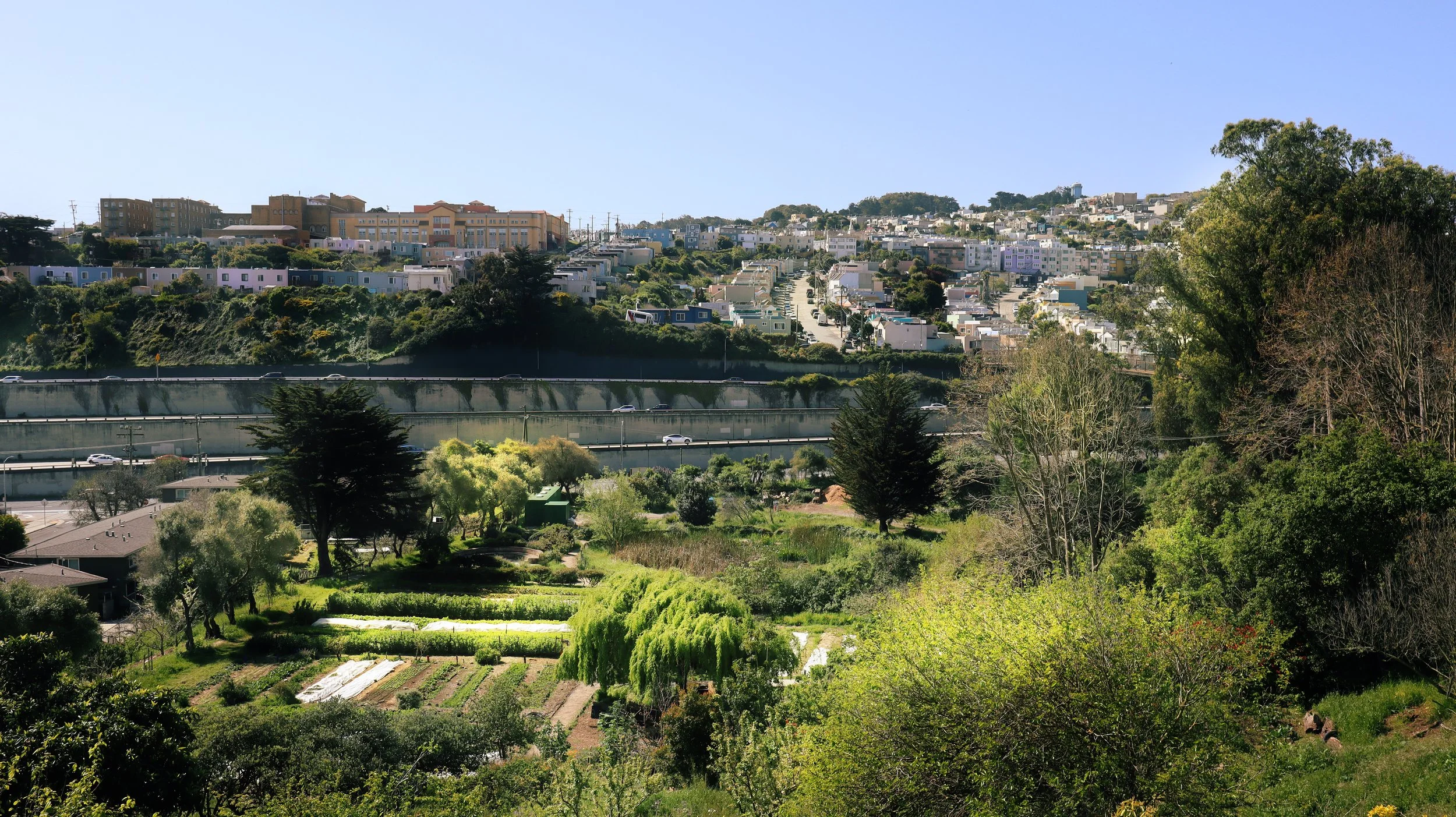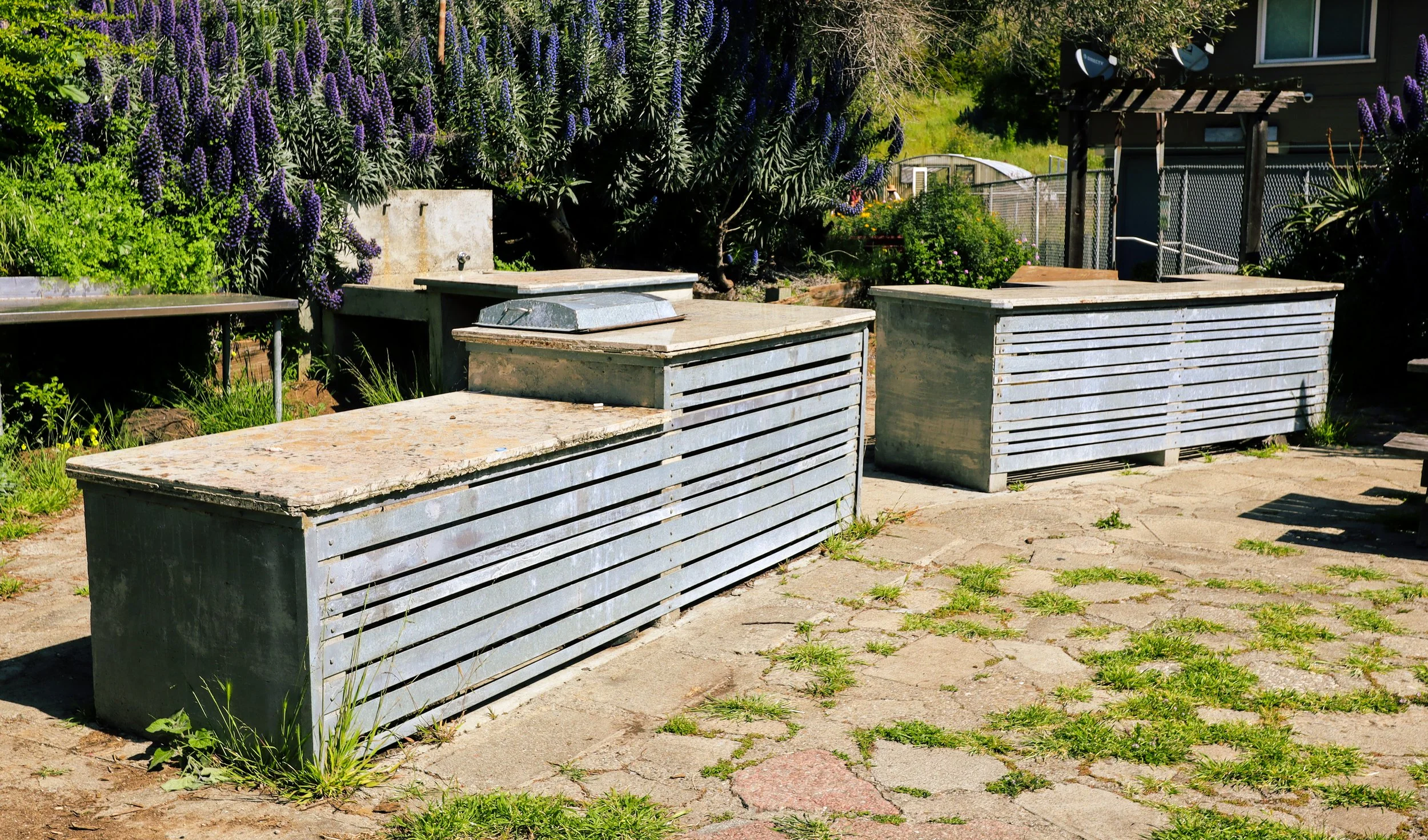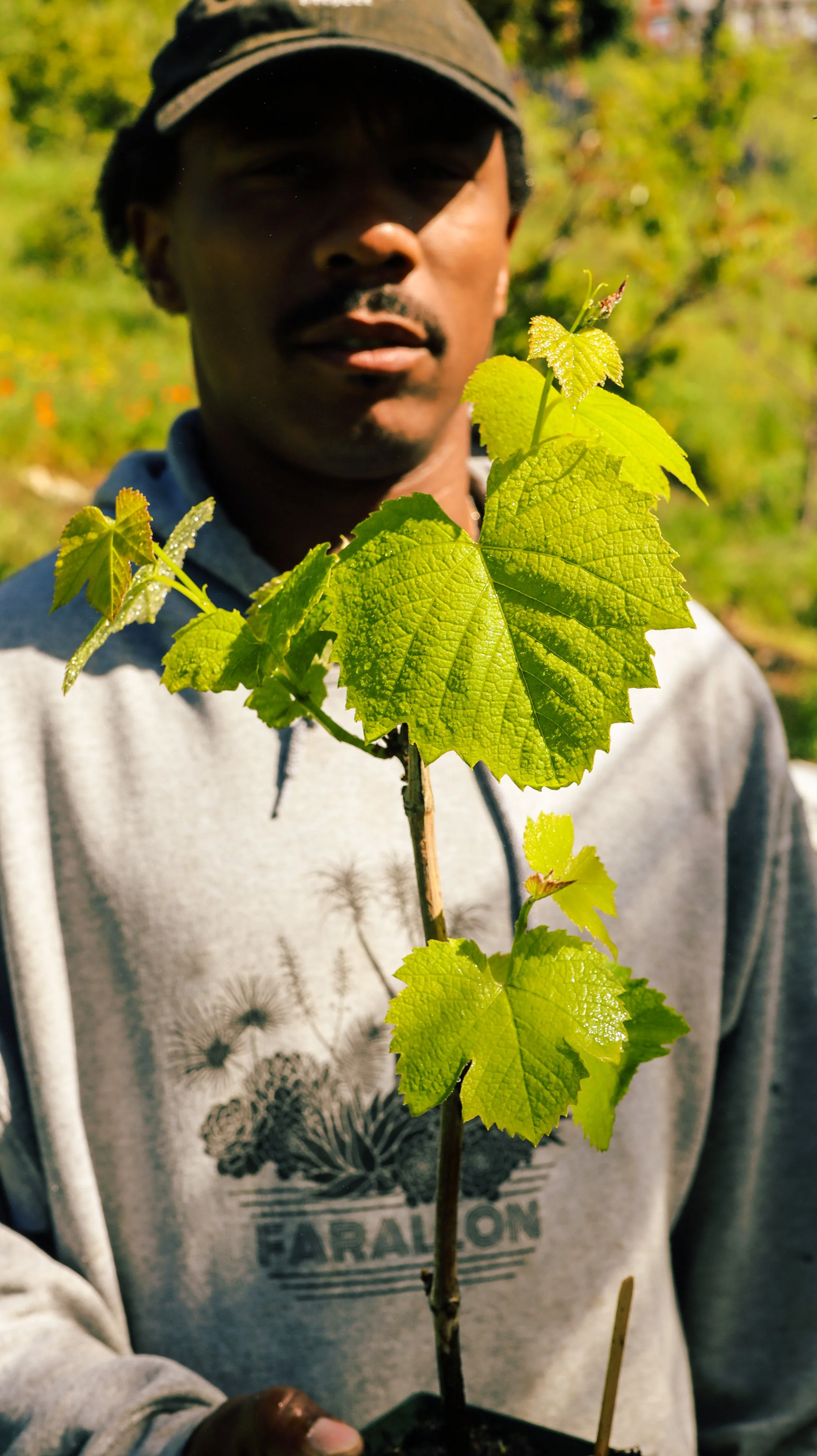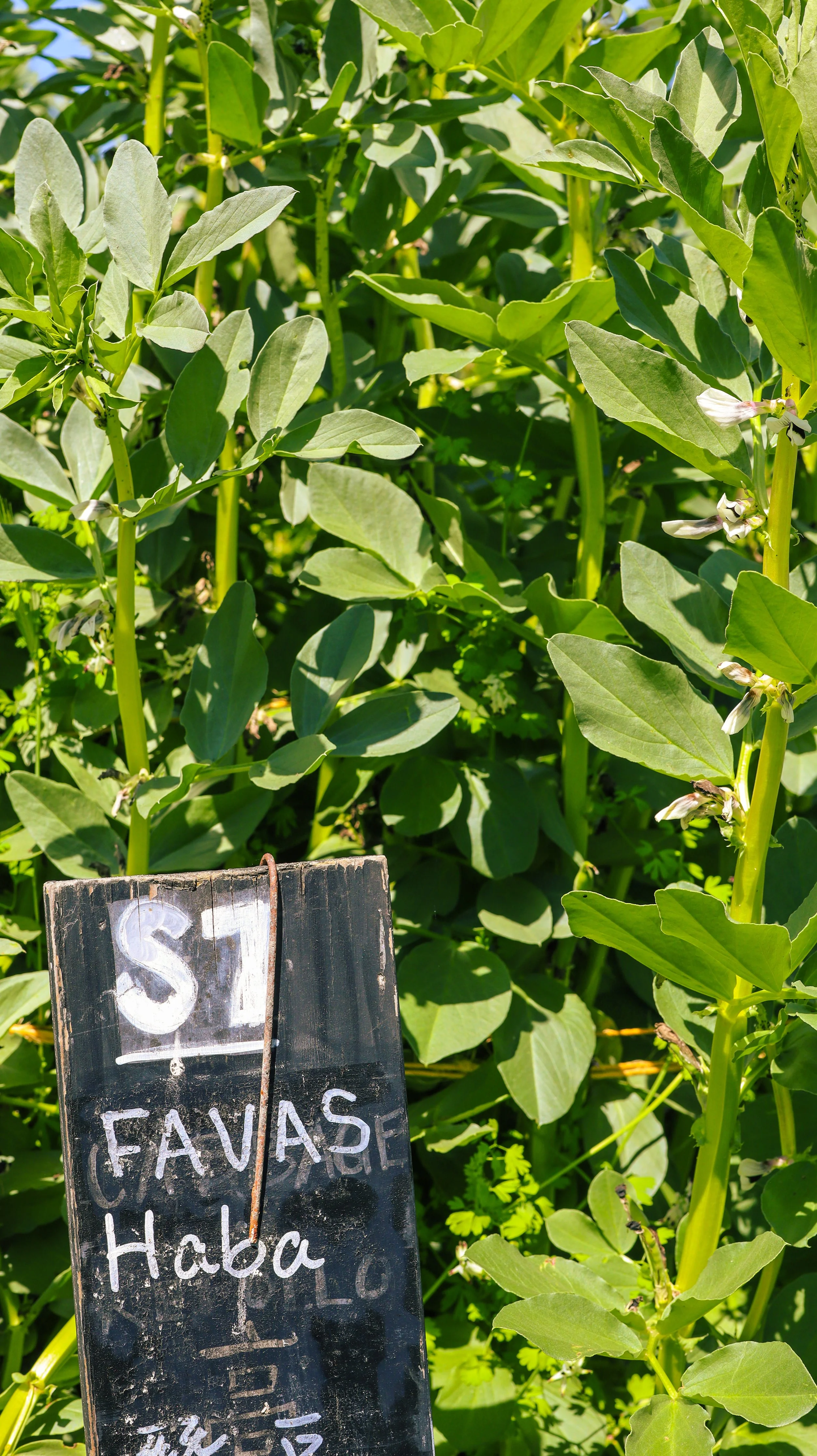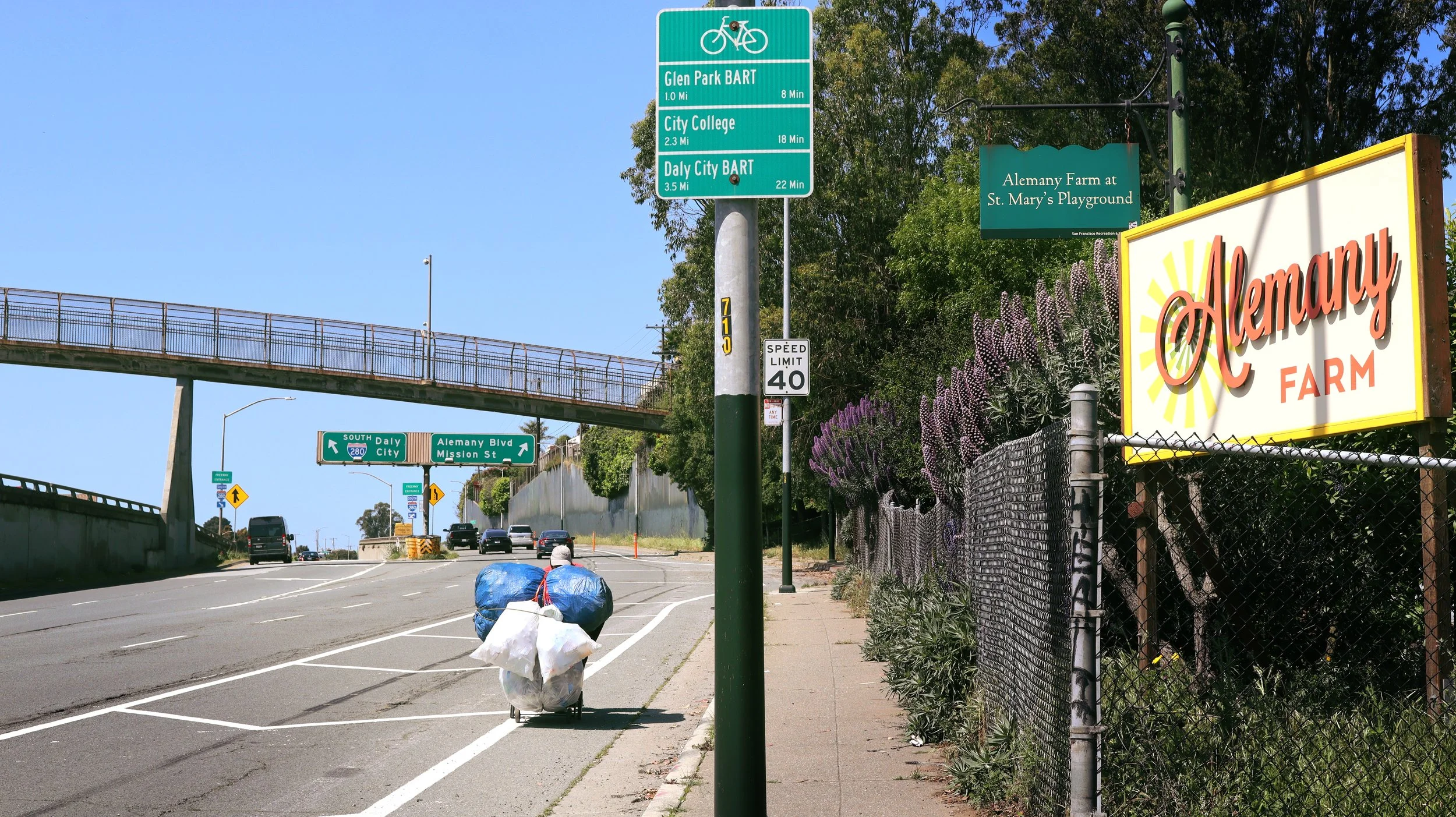Marginalized Varietals
Hilltop view of 280 Project at Alemany Farm. Photo courtesy of Edible SF.
Christopher Renfro doesn't fit any conventional image of a food and wine revolutionary. No family vineyard in Napa. No European apprenticeship. No traditional path into an industry that guards its gates. Yet standing beside him between rows of tenacious hybrid grapevines, I watch as his gaze sweeps across this unexpected landscape–abundant rows of organic produce, chain-link fences, and the silhouettes of 151 low-income housing units. I'm witnessing the Bay Area's most radical wine innovator at work.
"Honestly, this view never gets old," he smiles, "It's the perfect way to start my day."
Another hilltop view of Alemany Farm flanked by Alemany Apartments (low-income housing) and the 280 freeway.
This is the 280 Project–San Francisco's only vineyard and arguably the most audacious challenge to wine's established order in decades. Where traditional vintners seek pristine countryside isolation, Renfro has deliberately chosen the opposite: a steep hillside at Alemany Farm, flanked by a freeway and 151 units of low-income housing. It's a setting that would horrify traditionalists who equate winemaking with generational estates.
For Renfro, that's precisely the point.
The statistics tell the story: representation of people of color in wine production, distribution, and education remains disproportionately low. With the United States home to 11,600 operating wineries to date, less than 1% of them are Black-owned, according to the Association of African American Vintners (AAAV). While the industry has recently acknowledged these disparities, meaningful structural change has been slow, with many diversity initiatives criticized as superficial.
Renfro's journey began with the vineyard. Drawn to the steep hillside of Alemany Farm with its unlikely urban setting, he established the 280 Project as a direct challenge to the wine industry's established norms. During his time there, he quickly noticed something that would expand his mission: the stark contrast between the agricultural abundance and the neighboring community's limited access to fresh food.
We pause at the outdoor kitchen. Beyond it, collard greens unfurl in filtered sunlight beside sculptural kale and fragrant herbs—all ripe, untouched. Through a rusted chain-link fence, concrete courtyards of Alemany Apartments lie just steps away. The divide is visually striking: abundance and scarcity separated by a barrier, both physical and symbolic.
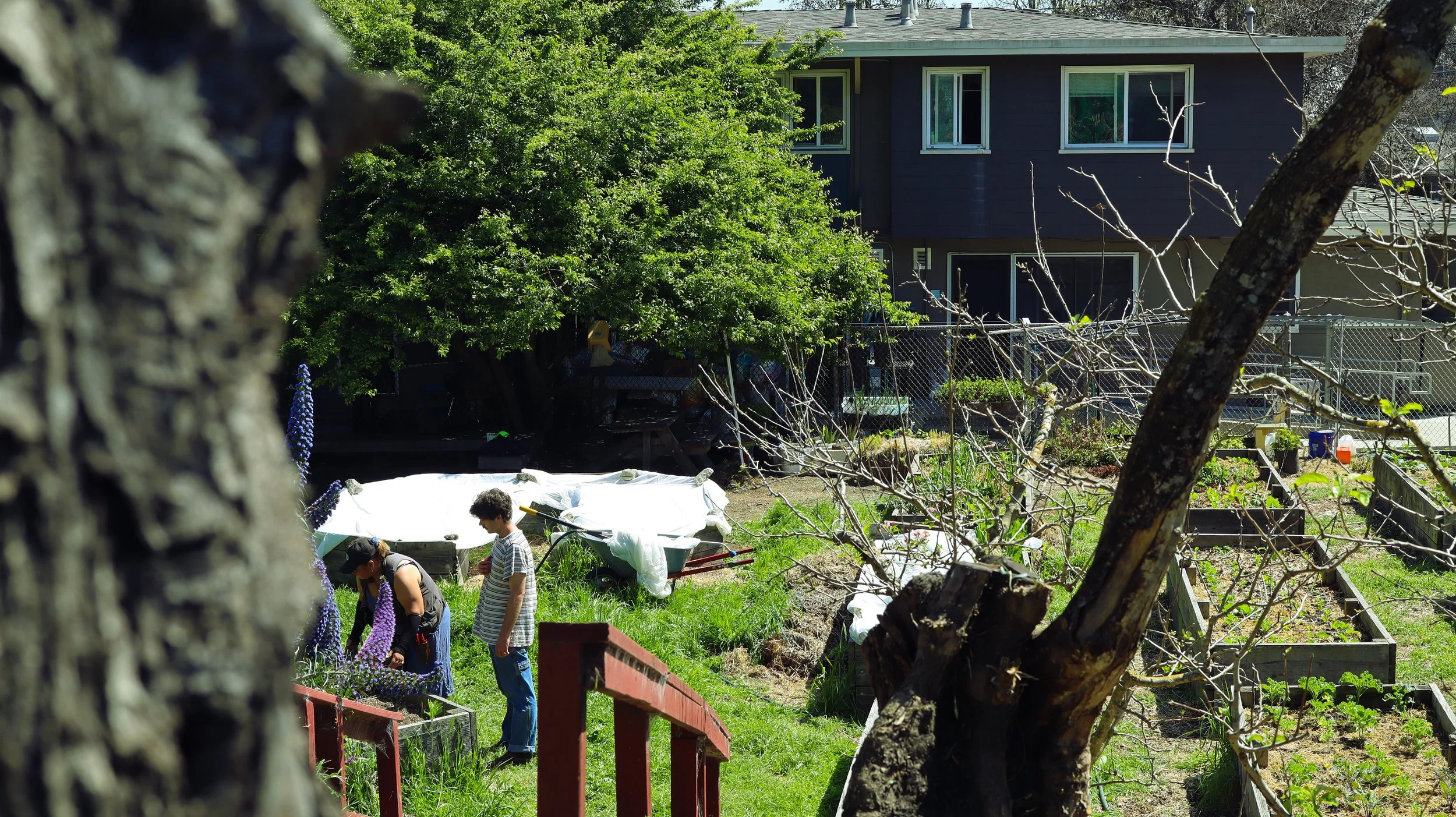
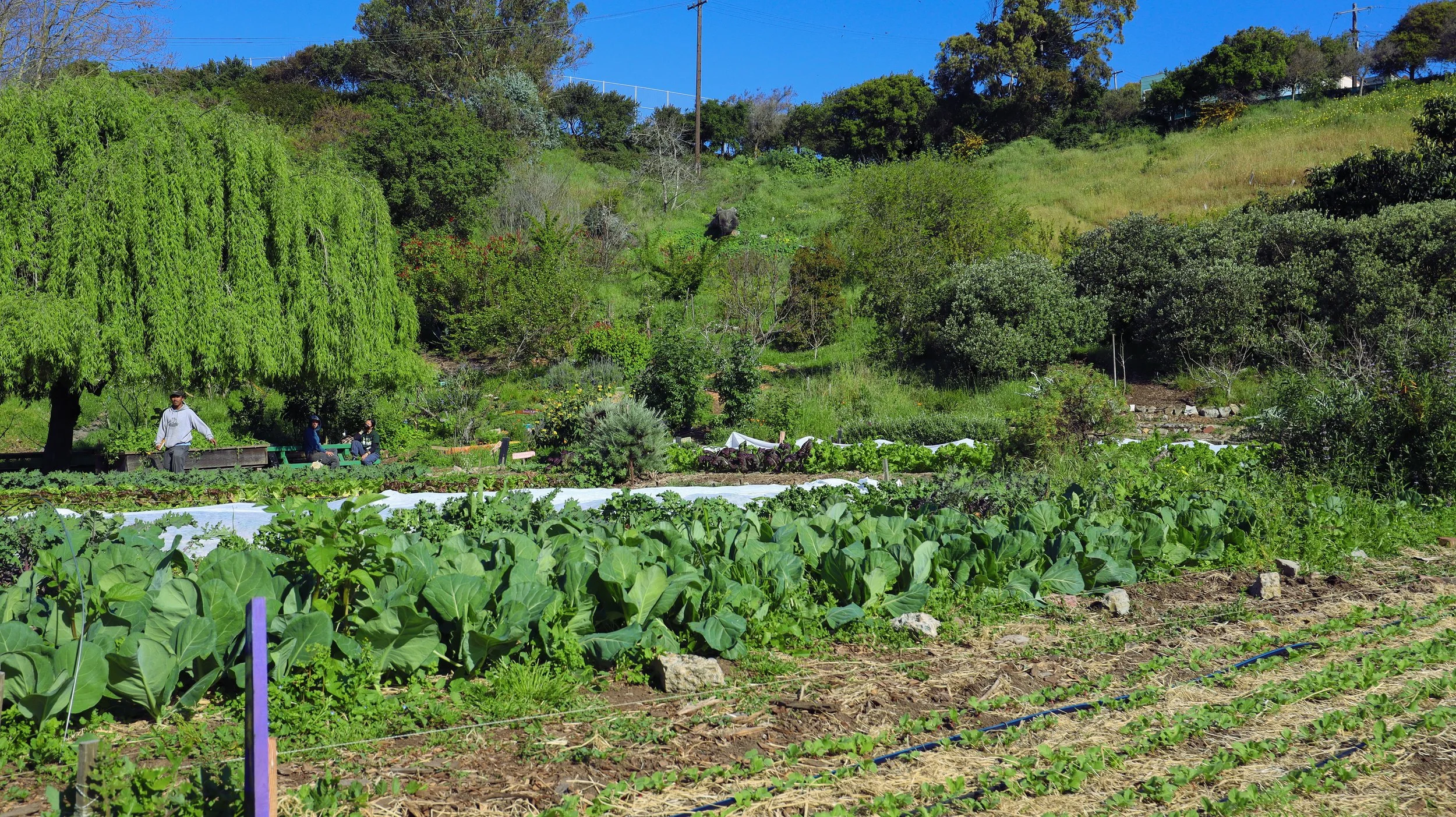

"I noticed all this food growing here, but the neighbors weren't eating it," Renfro explains, recounting his early observations at Alemany Farm. This disconnect catalyzed his next project.
Along with his friend Haley Garabato (previously Nisei's sous chef), he established the Feed The People Collective—an outdoor cooking school and pop-up restaurant that served the residents of Alemany Apartments and local neighbors completely free for three years. Sourcing ingredients directly from the adjacent organic farm, they created a hyperlocal food system that eliminated both physical and economic barriers to fresh, healthy meals.
"I would go door-to-door and ask how many plates they wanted," he says, pausing at the now-quiet outdoor kitchen where thousands of meals were once prepared. "From that, I met every single person in this neighborhood."
The fully functioning outdoor kitchen. Photo courtesy of Edible SF.
This direct community engagement transformed Renfro's understanding of access barriers. Several residents initially hesitated to participate, not because they didn't want fresh food, but because they were mistrustful of unfamiliar culinary experiences and felt intimidated.
"We weren't offering an elevated experience," he explains, "but showing that dining and good food are normal human experiences. For people who don't get to eat that way all the time, it might seem scary or weird. We wanted to remove that barrier."
When access to resources slowed for Feed The People Collective in 2022, Renfro refocused on his original mission in wine while carrying forward the lessons about accessibility he'd gained through the food program. His experiences distributing food had deepened his understanding of community needs and barriers to access, further fueling his approach to wine education.
The 280 Project's six-month paid apprenticeship program inverts traditional wine education models. While established pathways require financial privilege and expertise in European traditions, Renfro offers compensation and welcomes participants with zero experience, particularly BIPOC individuals, creating accessible paths to diverse industry careers.
““Napa is so bougie, and in a way that’s not real—it’s still just agricultural land,” he says, the statement a direct challenge to the wine industry’s existing pretensions. “I think wine is meant to be enjoyed, not necessarily always dissected. I want to make things that represent what I grew up around.””
This isn't just talk. In four short years, Renfro's vision has evolved to transform wine education and address local food inequity. The 280 Project has become a global magnet for aspiring winemakers, some from as far as international waters. Rita Manzana, the program's director, manages a waiting list that the program's current budget cannot accommodate.
"This year I had to turn away folks... I just had a couple of people apply from Mexico, Europe, and India," Manzana says, her voice tinged with regret. "There aren't a lot of programs like this in their country. And if there are, there's usually a barrier to entry, like you need disposable income."
What makes the program unique isn't just its accessibility, but the comprehensive network Renfro and Manzana have cultivated—connections spanning from UC Davis viticulture academics to Napa winemakers, local restaurateurs, and sommeliers.
"We're just an incubator for what other career paths in wine are available to you," Manzana explains. "Whether you're interested in winemaking, distribution, publications, science, or technology emerging in this space—how do we make those connections for folks? This program is more exploratory as we're the bridge regarding access and resources."
What they've built with so little tells a story of what's possible. A vineyard by the freeway. A 24/7 accessible organic garden with free produce. A growing waiting list that spans internationally.
The revolution is obviously working. It's just underfunded.
As the program continues to evolve, Renfro's vision extends beyond the current vineyard and apprenticeship program. The successes of both the 280 Project and Feed The People Collective have proven that his approach works and should be a replicable model.
"I want this place to be a hub for anybody who wants to figure out how to do this kind of work in their hometowns," he says, "Come learn the model, or fly me out and I'll help you do it."
As we finish our tour, Renfro examines a flourishing vine despite its challenging urban environment. He gently prunes a cutting, explaining how resilient these hybrid varieties are. The metaphor isn't lost on me. I part ways with him with a promise to revisit. Standing at the fence between Alemany Farm, the projects, and the highway, there's nothing subtle about this divide. One side: concrete, chainlink, and the daily architecture of getting by. On the other, an agricultural idyll.
Renfro saw it and built a bridge. A man who looked at an industry designed to exclude him and said: I'm coming in anyway, and I'm bringing everyone with me.
In his quiet persistence, Renfro reminds us that sometimes revolution isn't loud. Sometimes it's an insistent, stubborn quiet that things can be different from what they already are.
Entrance to Alemany Farms and The 280 Project by the freeway. Photo courtesy of Edible SF.
280project.com
700 Alemany Blvd, San Francisco, CA 94110


